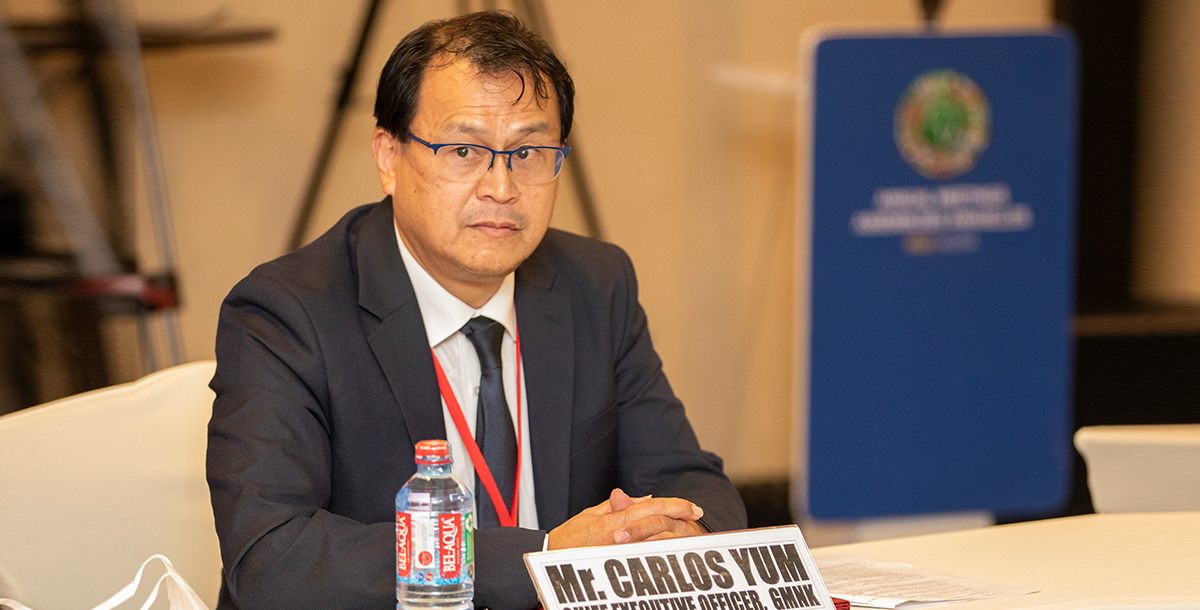
18 May Interview with Carlos Yum, Managing Director, Mphanda Nkuwa Project Implementation Office
Carlos Yum, Managing Director, Mphanda Nkuwa Project Implementation Office, talks about the projected impact of the giant Mphanda Nkuwa hydroelectric dam project in Mozambique and the country’s goal to become a regional power generation hub
Can you describe the scope of the Mphanda Nkuwa project to our readers?
The 1.5-gigawatt Mphanda Nkuwa project is a critical investment for Mozambique that will contribute towards the region’s energy transition. The project requires substantial capital of around $4.5 billion, of which $3.2 billion will be put towards building power generation capacity and $1.3 billion put towards building transmission infrastructure. The power generation segment will be paid for predominantly by private investments while the transmission segment will be covered by public finances. We are working with the government and several multilateral and bilateral financing institutions to finance the transmission segment, including the provision of partial risk guarantees, insurance and credit enhancements to secure private capital financing.
The project is the lowest cost option for power generation in Mozambique and the region. It will add significantly to the energy security and reliability of the region and deliver competitive blended-cost electricity for its end users, including industries. The project will have significant medium- and long-term structural ramifications and generate social, economic and financial benefits throughout its lifetime of at least 60 years. The asset will generate electricity for more than 10 million households and play an important role in regional economic integration. It represents a huge move towards harnessing renewable energy to contend with the huge deficit of power in the region. It will also drive foreign currency revenues into the country. In terms of sustainability, it is part of a program involving long-term investments in high-voltage transmission infrastructure known as green corridors, which is being promoted by the World Bank and African Development Bank. The Mphanda Nkuwa project will also create new jobs during its development phase and across its life-long operations. Of the estimated 7,000 direct jobs created by the dam in its construction phase, at least 90% will be occupied by Mozambicans. The project will also directly generate revenues for the government from taxes and concession fees and indirectly from small and medium-sized enterprises established with the additional electricity made available by the project.
What entities are involved in setting up the project?
The government of Mozambique — through a ministerial dispatch from the Ministry of Mineral Resources and Energy — established the Mphanda Nkuwa Project Implementation Office or GMNK. In July 2020, I was appointed to manage GMNK and coordinate all activities regarding the implementation of the project up to its financial close, including the selection of strategic investors. It is with great honor that I accepted the role to develop such an important strategic investment for the energy sector and the country after serving several key positions in national power utility Electricidade de Moçambique (EDM) for 25 years. Mandating EDM and Hidroeléctrica de Cahora Bassa (HCB) to lead this transaction through GMNK was an important decision taken in 2019 to ensure proper public leadership. These entities bring extensive corporate experience and financial support to GMNK and have been critical in the positive structuring of this large-scale investment through an off-balance sheet transaction approach.
What ambition does Mozambique have to become a regional hub for power generation?
Mozambique is a country in the South African Development Community with immense and diverse renewable energy resources such as hydro, wind and solar. Fortunately, Mozambique is also blessed with huge gas reserves, which is known worldwide. Mozambique is part of the global ecosystem. It is now an LNG exporter, with more exploration work expected in this segment. In 2014, Mozambique produced a renewable energy atlas, which mapped the energy potential of the country focused mainly on wind, solar, hydro, waves, geothermal and biomass. The renewable energy atlas was a key input under the Mozambique Electricity Master Plan concluded in 2018. The program covers a 25-year horizon with set investments for power generation, transmission and distribution infrastructure based on forecasted consumption rates. The master plan includes substantial contributions from renewable energy sources — particularly hydro — with the goal of exporting energy to the region. In 2022, Mozambique had 2.8 gigawatts of installed capacity, with 78% of it coming from water resources. The plan will enable Mozambique to become a regional power generation hub and a key driver of green industrialization for the region.
Already Mozambique exports more electricity than it consumes, which is reflected in the country’s interconnection power transmission capacity. Our regional transmission capacity is far higher than our internal transmission capacity between southern, central and northern systems. Mozambique’s southern system is still not interconnected with the central transmission system, which will soon be resolved through a 110-kilovolt connection. The Mphanda Nkuwa project will help to drive the much-needed internal power transmission system known as the Mozambique transmission backbone.
Mozambique is blessed with vast quantities of natural energy resources, both renewable and non-renewable. We are geographically well positioned to serve a regional market that has an energy deficit of around 6 gigawatts. The current legislative and regulatory framework is conducive for foreign direct investment, which has enabled substantial public and private capital to flow into the country. The institutional framework is established, with several independent power producers, a transmission concessionaire, regulator, national energy fund and electricity power utility. With the existing track record of building similar projects, Mozambique is a propitious country for foreign direct investment. The tender for the selection of a strategic investor for Mphanda Nkuwa highlights the nation’s attractiveness as an investment destination. In the tender process for the required $4.5 billion required, the Mphanda Nkuwa project attracted $191 billion in net worth of companies in the final stage of the tendering process.

Sorry, the comment form is closed at this time.